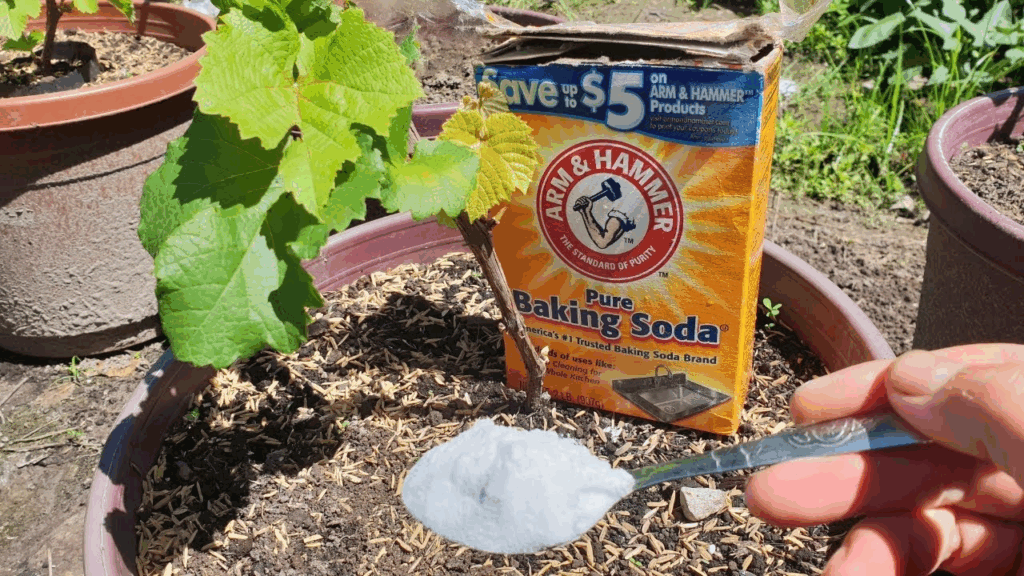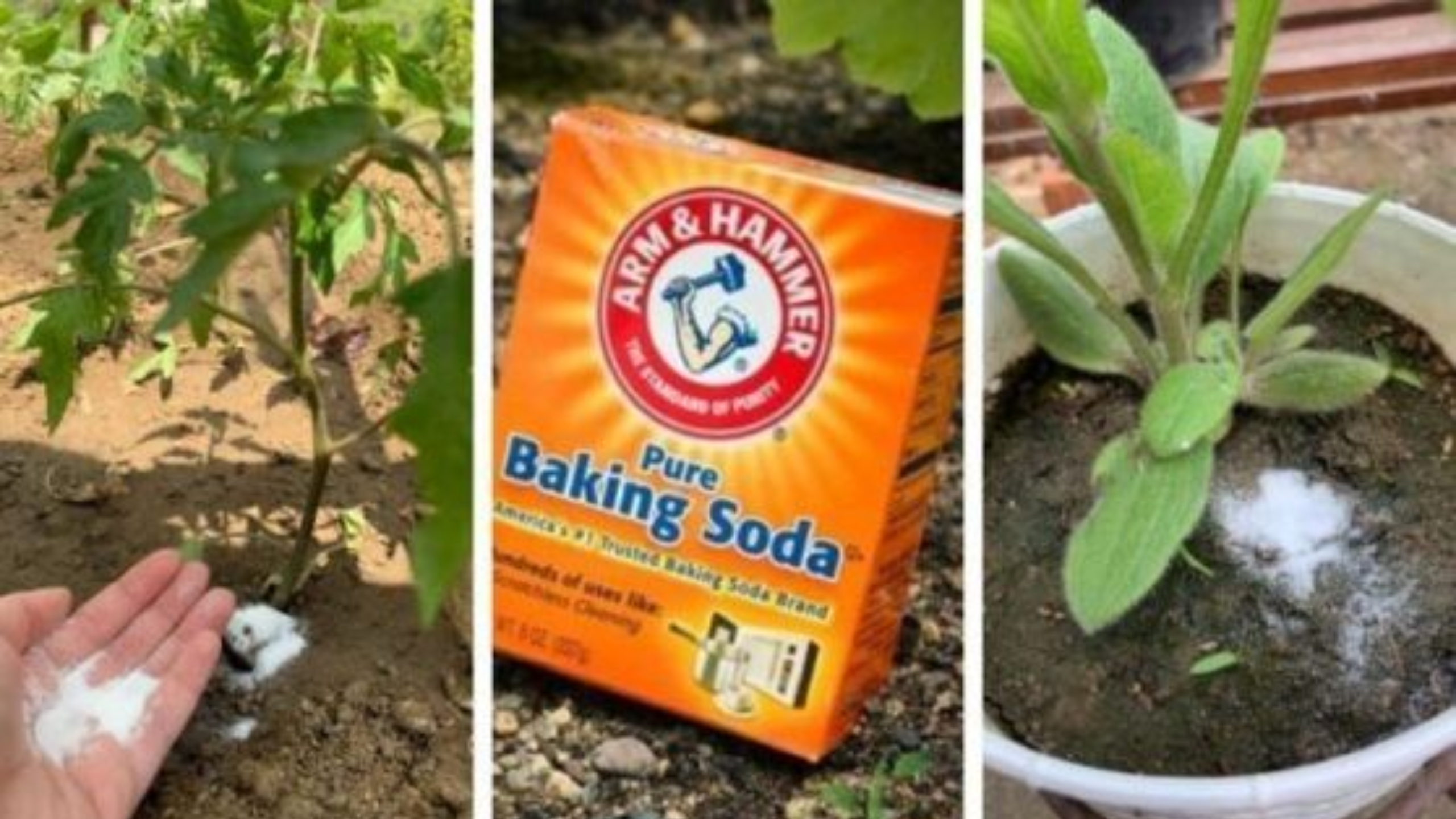Growing a thriving garden often requires a bit of knowledge and the right tools. From controlling pests to improving soil health, gardeners are constantly seeking effective, safe, and affordable methods. That’s where baking soda, a common household staple, comes into play. It’s surprisingly versatile and offers many benefits for your garden—without the harsh chemicals or hefty costs.
Why Is Baking Soda a Great Choice for Gardeners?
Natural and Non-Toxic
Unlike synthetic pesticides and chemical fertilizers, baking soda (sodium bicarbonate) is completely natural. It’s safe for your plants, pets, and the environment. When used correctly, it can help you avoid exposing yourself or your loved ones to potentially harmful chemicals, making it an eco-friendly option for sustainable gardening.
Budget-Friendly and Accessible
One of the biggest advantages of baking soda is its affordability. It’s readily available in most grocery stores, usually in the baking aisle. Using a common household item saves money—especially for those who plant a large garden or want to experiment without spending a lot.
Versatile in Gardening
This humble powder doesn’t just brighten baked goods; it can also serve multiple functions in your garden. Whether you’re fighting off pests, adjusting soil pH, or controlling unwanted weeds, baking soda can be a helpful tool in your gardening arsenal.
How to Use Baking Soda in Your Garden
Here are some practical ways to incorporate baking soda into your gardening routine:
1. Combating Powdery Mildew
Powdery mildew is a fungal disease that causes a white powdery coating on leaves, which can stunt plant growth.
How to use: Mix 1 tablespoon of baking soda with 1 quart (4 cups) of water. Add a few drops of liquid soap (to help the solution stick). Spray this mixture on affected plants weekly, especially in humid weather, to prevent and reduce mildew growth.
2. Managing Fungal Diseases
Fungal infections like black spot on roses or damping-off in seedlings can be tough to deal with.
How to use: Lightly sprinkle baking soda on the soil surface around young plants or infected areas. It acts as a mild fungicide, helping to keep diseases at bay without harming your plants.
3. Natural Pest Repellent

Say goodbye to pests like aphids and spider mites with a simple spray.
How to use: Mix 1 teaspoon of baking soda, 1 tablespoon of vegetable oil, and a few drops of liquid soap in 1 quart of water. Spray this solution on plants. It creates an environment that pests dislike, deterring them effectively. Remember to reapply weekly or after heavy rain.
4. Boosting Tomato Health
Tomatoes often suffer from blossom end rot caused by calcium deficiency and soil acidity. Baking soda can help!
How to use: Sprinkle a small amount of baking soda around the base of tomato plants to help lower soil acidity, promoting healthier growth and reducing rot.
5. Natural Weed Control
Weeds are a gardener’s persistent foe. Baking soda can help control weed growth without damaging your landscaping.
How to use: Sprinkle baking soda directly onto weeds growing in driveways, cracks, and walkways. It dehydrates the weeds and prevents their spread naturally.
6. Improving Soil Quality
If your soil is too acidic, baking soda can be used to raise the pH.
How to use: Use sparingly—adding small amounts can help neutralize acidic soils and create a more balanced environment for plants that prefer neutral to alkaline conditions.
Tips for Safe and Effective Use
- Dilution is key: Always mix baking soda with water or other recommended solutions. Undiluted baking soda can harm plants.
- Test before widespread use: Before applying a solution to all your plants, test it on a small area. Watch for any adverse reactions over a few days.
- Observe results: After application, keep an eye on your plants. If you notice signs of stress or damage, adjust your usage accordingly.
- Use moderately: Stick to recommended amounts to avoid altering your soil’s natural balance or potentially harming your plants.
Frequently Asked Questions
Is baking soda safe for all types of plants?
In general, yes, but always perform a patch test first and observe your plants’ responses.
Can I use baking soda every week?
It’s best to use it periodically, not excessively. Regular monitoring will help you determine what’s necessary for your garden.
Will baking soda harm beneficial insects?
Applied correctly, baking soda predominantly targets fungi and pests but is less likely to affect beneficial insects. Use spray in the early morning or evening to minimize impact.
Are there any downsides?
Overuse or high concentrations can alter soil chemistry, so moderation and proper dilution are crucial.
Final Thoughts
Incorporating baking soda into your gardening routine can be a game-changer. It offers an inexpensive, safe, and versatile solution for common gardening challenges—from fungal infections to pest control and soil amendments. Plus, it aligns with eco-friendly practices and helps you maintain a healthier garden environment.
Whether you’re an experienced gardener or a curious beginner, experimenting with baking soda is easy and rewarding. Just remember to start small, test, and observe your plants’ responses. With a little care and patience, this simple kitchen staple can help you cultivate a lush, thriving garden all season long.
Happy gardening!


2 thoughts on “Transform Your Garden Naturally with Baking Soda: A Simple and Safe Solution”